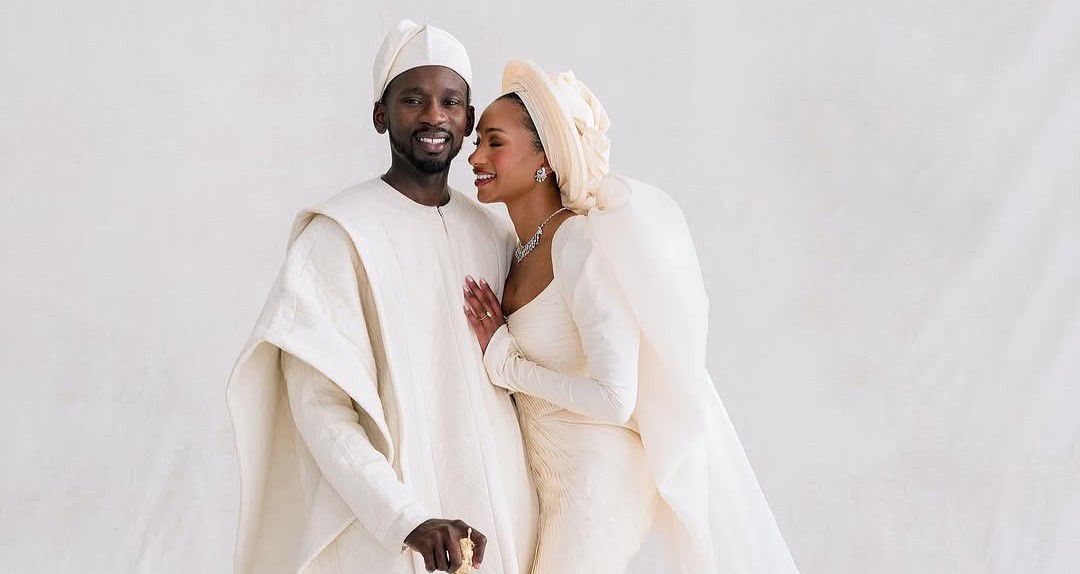When billionaire’s daughter, Temi Otedola, shocked Nigerians by changing her surname to Ajibade after marrying singer Mr. Eazi (Oluwatosin Ajibade), social media went into a frenzy.
How do you let go of a powerful name like Otedola, a name that commands respect and opens doors both in Nigeria and abroad? For some, it was a sweet show of love and unity; for others, it was a betrayal of identity and a spit in the face of feminism.
But beyond celebrity gossip, is a Nigerian woman obligated by law, religion, or culture to drop her maiden name and adopt her husband’s surname? Let’s break it down.
ALSO READ: I refused to change my surname after marriage, now my husband wants a divorce
The Legal Perspective
Legally, in Nigeria, no law mandates a woman to change her surname after marriage. A woman can keep her maiden name if she wishes. According to the Marriage Act and other legal frameworks in Nigeria, no law requires or demands a woman to take up her husband’s last name.
The issue of name-changing is solely based on traditional and customary practices in Nigeria. However, some institutions, like the National Youth Service Corps (NYSC) or Health Maintenance Organisations (HMOs), may request proof of name change as part of marriage evidence, but this is a bureaucratic practice, not law.
So it is not a law, and it is not compulsory, and women are entirely free to decide.
YOU MIGHT LIKE: Deeper Life’s Marriage Rules: The shocking do’s, don’ts, and new changes
Religion
Nigeria is home to two major religions, and this will focus on their perspectives on whether women should change their names after marriage.
Islam
In Islam, there is no obligation for a woman to adopt her husband’s surname after marriage. In fact, scholars point out that none of the Prophet Muhammad’s (peace be upon him) wives took his surname, they all retained their fathers’ names.
READ ALSO: I don’t believe in women changing surnames after marriage – Emir Sanusi’s daughter-in-law
The reason for this is that lineage (nasab) must be preserved. A woman belongs to her father’s lineage, not her husband’s. To take a husband’s surname as though it represents blood ties would blur ancestry and go against the Shari’ah’s emphasis on truth in lineage. Surah al-Ahzab (33:5):
Call them (your adopted children) by [the names of] their fathers; it is more just in the sight of Allah…
This verse emphasises preserving lineage and not falsely attributing oneself to someone other than the biological father. A ḥadīth (Prophetic saying), reported in the collections of Ibn Mājah (2599) echoed this as well:
Whoever calls himself by other than his father’s name (or attributes himself to someone other than his father), will be cursed by Allah, the angels, and all the people.
Islamic jurists clarify that while using a husband’s name for identification may be culturally acceptable, it must not mislead others into thinking her lineage has changed. Thus, a Muslim woman may choose to use her husband’s name, but she is under no religious compulsion to do so.
SEE THIS: Is wearing hijab a MUST for every Muslim woman?
Christianity
Christian marriage is often described as a spiritual union that mirrors the relationship between Christ and the Church. Ephesians 5:23:
For the husband is the head of the wife, even as Christ is the head of the church: and he is the Saviour of the body.
For some Christians, a woman taking her husband’s surname symbolises this union, unity, and submission to marital leadership. However, the Bible gives no explicit command that a woman must adopt her husband’s surname. Many pastors agree that it is a matter of choice, not doctrine.
Some Christian communities and lawyers argue that adopting the husband’s name avoids confusion and reinforces social recognition, but even here, it remains a cultural expectation rather than a biblical law.
RECOMMENDED: Is single motherhood by choice a sin? 4 pastors respond
Cultural Practices and Traditions
Pre-colonial Nigerian cultures, whether Igbo, Yoruba, or Hausa, did not require women to change their names after marriage. For example, in Igbo tradition, women retained their father’s names even in marriage, and their remains were often returned to their father’s home for burial.
This sentiment was echoed by renowned author Chimamanda Adichie, who is married but still bears her father’s name. In her words:
In pre-colonial Igbo culture, women didn’t bear their husband’s surname; they bore their father’s surname. Everything changed when the British colonised us. We then abandoned our own culture and followed British culture. In pre-colonial Igbo society, if a married woman died, her corpse would be returned to her father’s home to be buried there. In pre-colonial Igbo culture, women belonged to their father’s place; their husbands just borrowed them for both to live together and have children.
RELATED: Here are the parts of Igboland where a woman can marry a wife
In Yoruba tradition, children were primarily identified by their mother’s maiden name before the father’s household name. The practice of adopting a husband’s surname came with colonial rule and Western education, and it stuck as a social convention.
According to reports, this was how a child was identified in Yoruba culture. “Kọlawole ọmọ ajiun, aya Adisa olobi”, which is loosely translated to mean “Kolawole, child of Ajiun, wife of Adisa the palm-wine tapper.”
Today, renowned women like Ngozi Okonjo-Iweala, Omotola Jalade-Ekeinde, Kate Henshaw-Nuttall, and Joke Silva have shown that retaining one’s maiden name, or hyphenating it with the husband’s surname, is a valid and respected option.
>
